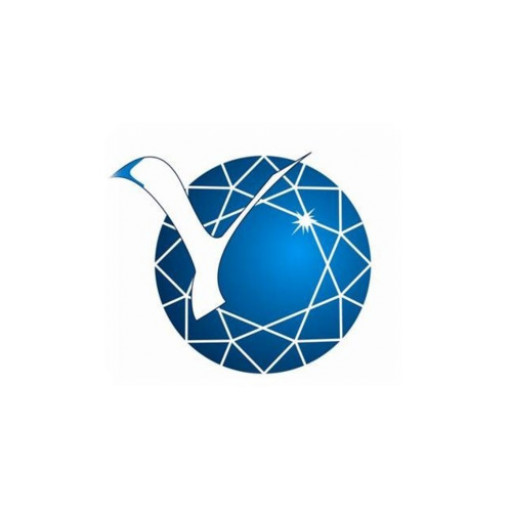Photos of university
The Bachelor of Engineering in Industrial Engineering and Economics at Tokyo Institute of Technology is a comprehensive program designed to equip students with a multidisciplinary foundation in engineering principles, economic analysis, and management strategies. This program aims to develop professionals who can seamlessly integrate technical expertise with economic understanding to solve complex industrial problems and contribute to the development of efficient, sustainable, and innovative manufacturing and service industries.
Throughout the curriculum, students are exposed to core courses in industrial engineering, such as operations research, production management, logistics, quality control, and systems optimization, as well as economic subjects including microeconomics, macroeconomics, and industrial economics. This combination fosters a holistic understanding of how industrial operations impact economic environments and how economic principles can optimize industrial productivity and efficiency.
In addition to theoretical knowledge, the program emphasizes practical skills through laboratory work, projects, and internships, encouraging students to apply their learning to real-world scenarios. Students learn to analyze production systems, design efficient workflows, and utilize advanced engineering tools such as simulation and data analysis for decision-making processes.
The program also promotes a global perspective by incorporating international case studies and encouraging language proficiency and cross-cultural communication. Students gain insights into international industrial and economic trends, preparing them for careers in multinational corporations, consulting firms, government agencies, and research institutions.
Graduates of this program are well-prepared to pursue careers in areas such as production planning, supply chain management, industrial consulting, economic analysis, and technological development. They also receive a solid foundation for advanced studies or research in related fields.
Overall, the Bachelor of Engineering in Industrial Engineering and Economics at Tokyo Institute of Technology offers a rigorous and dynamic education that bridges engineering and economics, fostering innovative thinking, analytical skills, and a strategic outlook necessary for leadership roles in industry and academia. The program’s focus on interdisciplinary learning ensures that graduates can contribute to the sustainable and efficient operation of industries worldwide, addressing the increasingly complex challenges of modern economies.
Systematically study more advanced concepts, skills, and technology based on the latest research in the fields of mathematics, economics, business administration, and management techniques, building on the fundamental knowledge related to industrial engineering and economics acquired in the Undergraduate Program. Students can also learn about trends in related fields from Research-Related Courses, and broaden their experience and knowledge through international presentations. Also, the curriculum is structured so that students can deepen their specialization and increase their creativity by performing research on their own while attending Research Seminars and conducting their master's thesis research.
400-level
|
Course |
Course |
|
IEE.B406 |
Historians and Economists |
|
IEE.B402 |
Advanced Macroeconomics |
|
IEE.B403 |
Advanced Noncooperative Game Theory |
|
IEE.B401 |
Advanced Microeconomics |
|
IEE.A433 |
Pension Mathematics |
|
IEE.C433 |
Advanced Course of Management |
|
IEE.B431 |
Advanced Topics in Microeconomics |
|
IEE.B433 |
Advanced Topics in Mathematical Economics |
|
IEE.A431 |
Systems Theory and Operations Research |
|
IEE.C430 |
Operations Management |
|
IEE.C432 |
Applied Cognitive Ergonomics |
|
IEE.B405 |
Advanced Econometrics |
|
IEE.B404 |
Advanced Cooperative Game Theory |
|
IEE.B435 |
Risk Management and Labor Welfare for Lifelong Design 1 |
|
IEE.A430 |
Numerical Optimization |
|
IEE.D434 |
Corporate Finance and Governance |
|
IEE.B432 |
Advanced Topics in Macroeconomics |
|
IEE.D433 |
Corporate Transformation |
|
IEE.B434 |
Advanced Topics in Econometrics |
|
IEE.C431 |
Applied Statistical Analysis |
|
IEE.D432 |
Financial Statement Analysis and Valuation |
|
IEE.E401 |
Reading in Industrial Engineering and Economics S |
|
IEE.Z491 |
Seminar in Industrial Engineering and Economics S1 |
|
IEE.E402 |
Reading in Industrial Engineering and Economics F |
|
IEE.Z492 |
Seminar in Industrial Engineering and Economics F1 |
|
IEE.B436 |
Risk Management and Labor Welfare for Lifelong Design 2 |
|
IEE.A432 |
Advanced Mathematical Programming |
|
IEE.D431 |
Distribution and Marketing |
500-level
|
Course |
Course |
|
IEE.C501 |
Design Thinking |
|
IEE.B530 |
Modeling of Global Environment and Economic Growth |
|
IEE.C530 |
Design Business |
|
IEE.C532 |
Management of Technology and Intellectual Property |
|
IEE.B531 |
Frontier of Environmental Economics and Policy Studies |
|
IEE.E505 |
Practical Training at Advanced Companies |
|
IEE.E501 |
Academic Presentation in Industrial Engineering and Economics S |
|
IEE.E503 |
International Workshop Presentation (Abroad) |
|
IEE.E504 |
International Workshop Presentation (Domestic) |
|
IEE.Z591 |
Seminar in Industrial Engineering and Economics S2 |
|
IEE.C531 |
Enterprise Engineering |
|
IEE.E505 |
Practical Training at Advanced Companies |
|
IEE.E502 |
Academic Presentation in Industrial Engineering and Economics F |
|
IEE.E503 |
International Workshop Presentation (Abroad) |
|
IEE.E504 |
International Workshop Presentation (Domestic) |
|
IEE.Z592 |
Seminar in Industrial Engineering and Economics F2 |
Eligibility
- Persons who have successfully completed 16 years of education outside Japan or who are expected to do so by March 31, 2017.
- Persons who have graduated from a university or college in Japan.
- Persons who have successfully completed 3 years or more of education at a university or college outside Japan and obtained a degree equivalent to Bachelor's degree or who are expected to do so by March 31, 2017.
- Persons who have successfully completed 15 years of education and obtained a degree equivalent to Bachelor's degree outside Japan or who are expected to do so by March 31, 2017 and are individually assessed and recognized by the relevant School of Tokyo Institute of Technology as having outstanding academic records.
- Persons whose countries do not require 16 years of education prior to obtain a university-level education but who satisfy both of the conditions noted below and are individually assessed and recognized by the Tokyo Institute of Technology Graduate School as having academic ability equivalent to or higher than that of graduates of a Japanese university.
- Persons who have spent at least one year as a research student or research fellow at a university or research institution in or outside Japan after successfully obtaining a Bachelor's degree.
- Persons who are at least 22 years old by March 31, 2017.
Application Requirements
- Application Form (attached form: original, no photocopies)
- Field of Study and Study Program [Research Proposal] (attached form)
- Official Academic Transcripts from both undergraduate and graduate schools (originals or certified copies)
- Certificate of Graduation or Expected Graduation from both undergraduate and graduate schools (originals or certified copies). If the applicant graduated or is graduating early or has skipped a grade or year, please submit an official document or letter issued by the school indicating such fact.
- Summary of Thesis or Research (free format)
1) For applicants to the Master's program: an outline of your study or research in your undergraduate course.
2) For applicants to the Doctoral program: a summary of your thesis or, if the applicant has not written a Master's thesis, please submit a summary of the Master's program research.
[Applicants for the Doctoral Program under eligibility condition B (3) are not required to submit this.] - English Proficiency Test Score Report (original, no photocopies)
- Evaluation Sheet with Recommendation (in a single document) from a supervisor or head of department or similar official of the last university attended to verify the potential of the applicant (attached form) (original, no photocopies)
- Consent of a Tokyo Institute of Technology Faculty Member. Attach a printout of email correspondence or any other proof to verify that a Tokyo Tech faculty member has consented to be the applicant's academic supervisor during the intended period of study at Tokyo Tech.
- Applicant's Passport (one photocopy of the page or pages with the applicant's name, nationality, date of birth and photo). *A Japanese citizen must also submit one photocopy of the page or pages of his/her passport that shows visas obtained in the country where he/she lives.
- Application Fee: ¥30,000 (JPY). Applicants must pay the stated application fee by credit card within the application payment period.
Payment Period : September 1, 2016 - November 1, 2016
Scholarships
MEXT Scholarship(University Recommendation -SGU-)
Applicants with outstanding academic performance records have the chance to apply for the Japanese Government (MEXT) Scholarship. The scholarship provides a monthly stipend, \147,000 (JPY) for Master's Program students and \148,000 (JPY) for Doctoral Program students. (*This stipend is subject to change as specified by the regulations of the MEXT Scholarship program.) Traveling expenses are not provided from MEXT. This scholarship will be paid from April 2017 to March 2018 (12 months). The scholarship period can be extended under some conditions specified by MEXT. Successful MEXT Scholarship recipients are not required to pay admission or tuition fees. The number of awards is very limited.
NOTE: The applicant will be required to withdraw from the scholarship if he/she is applying to more than one program which will be supported by MEXT scholarship or he/she is applying to Japan Student Services Organization (JASSO) scholarship and MEXT scholarship simultaneously.
JASSO
Applicants who enroll in Tokyo Tech without other scholarship have the chance to apply for the "Monbukagakusho Honors Scholarship for Privately Financed International Students" from the Japan Student Services Organization (JASSO).
Please note that those who are granted any other scholarship cannot apply to receive this scholarship simultaneously. The monthly amount of this scholarship is ¥48,000 (JPY). The monthly amount is subject to change as specified by JASSO. This scholarship will be paid from April, 2017 to March, 2018 (12 months). You should pay the admission and tuition fees even if you are selected as a recipient of this scholarship.
The Department of Industrial Engineering and Economics at Tokyo Institute of Technology offers a comprehensive interdisciplinary program designed to equip students with the necessary skills and knowledge to address complex industrial and economic challenges in a rapidly changing global environment. The program emphasizes integrating engineering principles with economic analysis to foster innovative solutions in manufacturing, logistics, energy, and sustainability sectors. Students are exposed to a broad curriculum that includes systems engineering, optimization, financial engineering, operations research, and economic theory, enabling them to develop a holistic understanding of the technological and economic factors influencing modern industries. The program promotes experiential learning through hands-on projects, internships, and collaboration with industry partners, preparing graduates for careers in manufacturing management, consulting, economic analysis, and technology policy. Tokyo Tech's faculty comprises leading experts renowned for their research in industrial engineering, economics, and related fields, providing students with mentorship and cutting-edge knowledge. The department encourages internationalization through exchange programs and collaborative research initiatives with universities worldwide, fostering a diverse academic environment. Graduates of the program are equipped to contribute effectively to the optimization of industrial processes, economic decision-making, and sustainable development initiatives. The program's research facilities and resources support advanced study and innovation, emphasizing real-world applications of theoretical concepts. Overall, the Department of Industrial Engineering and Economics at Tokyo Tech aims to cultivate professionals capable of bridging the gap between engineering and economics, driving technological advancement and economic efficiency in various industries.









